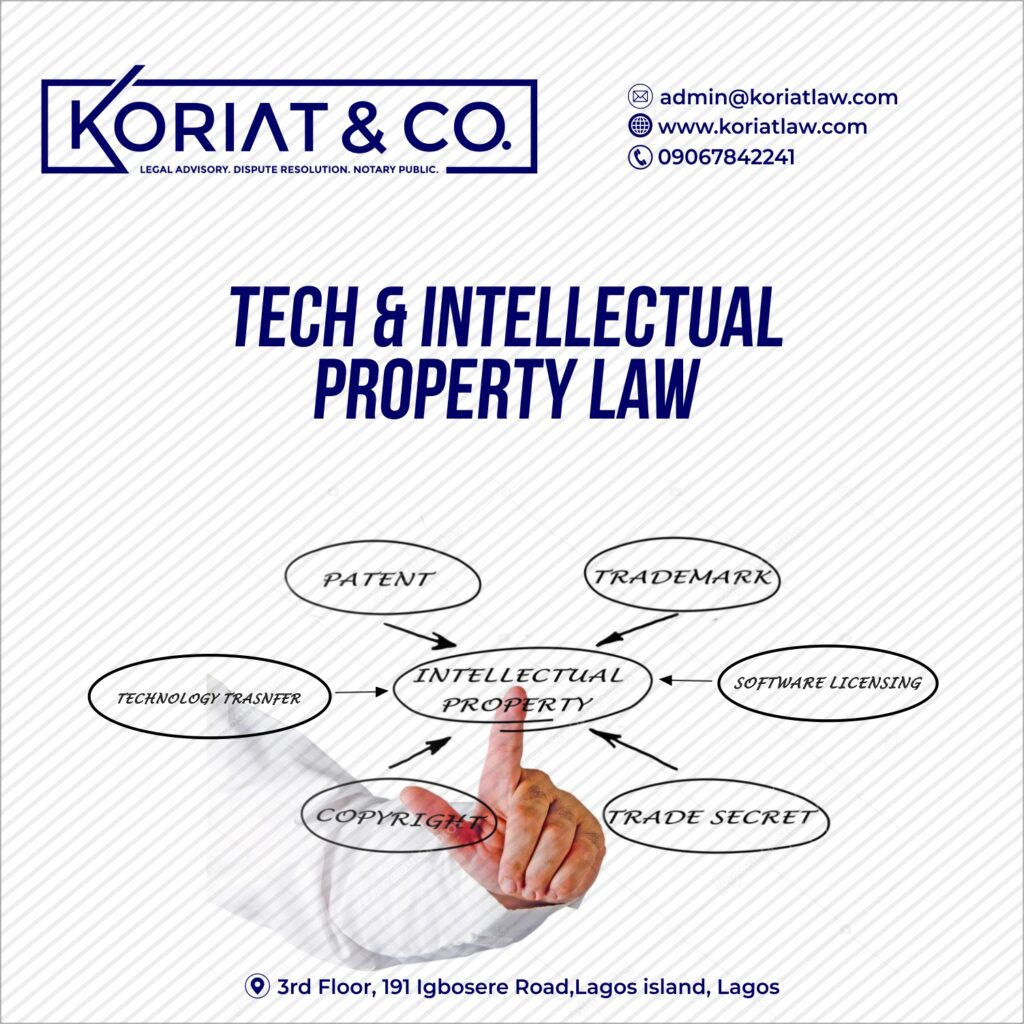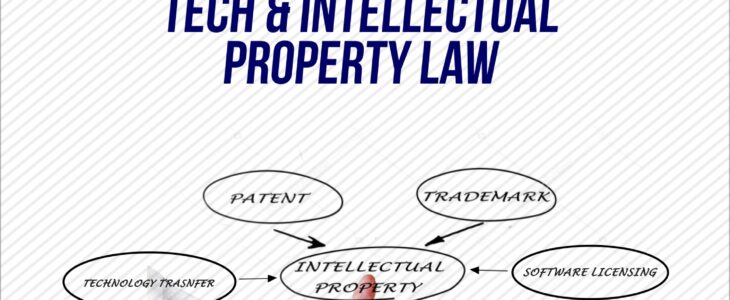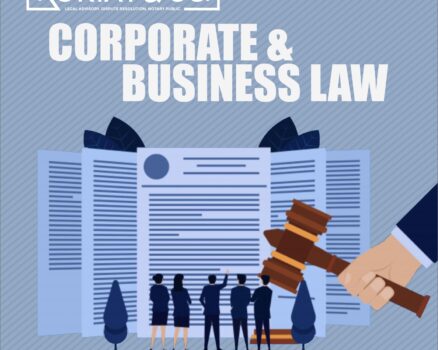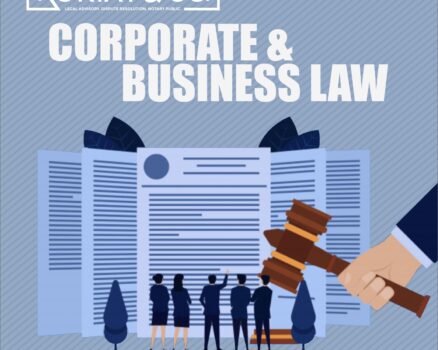
Trademark, in a simple term, is a word, symbol, device, or any combination used to identify a particular product thereby distinguishing it from other products. It confers a legal right on the holder and prohibits others from making use of that particular word or symbol as the case may be. Therefore, the fundamental feature of trademark is that the mark identifies with the owner and the product.
In Ferodo Ltd & Anor v. Ibeto Industrial Ltd (2004) LPELR-1275 (SC), the supreme court stated that the essential of a device claimed to be trademark is that it identifies the goods of a particular merchant and distinguishes the goods from the goods of others. It is instructive to note that rights in an unregistered trademark is distinct from the rights acquired in registered trademark. Therefore, for a mark to be beneficial to the owner and have proprietary value, it must be registered in accordance with the law.
A mark could be registered under part A or part B of the Trademark Act 1965 (Laws of the Federation of Nigeria 2004) (“the Act”). Although section 3 of the Act preserves the right in passing off action. However, it prevents the owners from claiming damages for infringement of the unregistered trademark.
Please note that it is not all marks that are registrable under Nigerian law, hence there are registrable and non-registrable marks under the Act. While those marks that are registrable enjoy protection under the Act, on the other hand, those marks that are not registrable do not enjoy protection under the Act and the proprietors cannot seek legal redress for such infringement under the Act.
This article will in a question-and-answer format provide overhauling understanding of protectable and non-protectable marks within the Nigerian jurisdiction.
What is the benefit of registered trademarks in Nigeria?
By the provisions of Section 5(1) and (2) of the Act, the owner or person for whom a trademark is registered and entered in the Register of Trade Marks becomes the proprietor of such trademark(s) and same is given or vested with the exclusive right to use the trademark in relation to the goods for which it has been registered, as well as the right of protection of the mark(s) from unauthorized use and infringement by other persons in relation to such goods. See International Tabacco (Nig) Ltd & Ors v. B.A.T (Nig.) Ltd & Anor (2023) LPELR-60272 (SC). It is therefore advisable that all marks used in business should be registered so that the owner will reap from the fruit of his labour by having a monopoly right and action in infringement.
What are registrable marks under the Trademark Act?
For a proprietor of a mark to benefit from protection granted under the Nigerian trademark law, such mark must be registered. Under the Act, a mark may be registered either under Part A or Part B of the Act as provided under section 9(1) and section 10(1) respectively. Both classes of marks have their qualities and characteristics. Part A mark must be ‘Distinctive’ on registration, while Part B should be capable of ‘Distinguishing’.
Registration under Part A
Section 9(1) provides that in order for a trade mark (other than a certification trade mark) to be registrable in Part A of the register, it must contain or consist of at least one of the following essential particulars:
- The name of company, individual, or firm, represented in a special or particular manner;
- The signature of the applicant for registration or some predecessor in his business;
- An invented word or invented words;
- A word or words having no direct reference to the character or quality of the goods, and not being according to its ordinary signification a geographical name or a surname; at any other distinctive mark:
Provided that a name, signature or word or words other than such as fall within paragraphs (a) and (d) of this section, shall not be registrable under paragraph (e) of this section, except upon evidence of its distinctiveness.
The underlying qualification for registration under Part A of the Register is “Distinctiveness”. In accordance with section 9(2) of the Trade Mark Act, “Distinctive” means adapted, in relation to the goods in respect of which a trademark is registered or proposed to be registered, to distinguish goods with which the proprietor of the trade mark is or may be connected in the course of trade from goods in the case of which no such connection subsists, either generally, or where the trade mark in registered or proposed to be registered subject to limitations, in relation to use within the extent of the registration. However, a trade mark can be regarded as being ‘distinctive’ either by its being inherently adapted to distinguish per se or by reason of its use or any other circumstances, the trade mark is, in fact, adapted to distinguish. See Section 9(3) of the Act.
Below is a brief comment on each of the registrable trademarks:
(a) The name of company, individual, or firm, represented in a special or particular manner: For a name to qualify for registration under this provision it must be presented in a way that is unique and distinct from other names. No person has the right to prevent another from use of a particular name unless the name has been distinctive of his business. See Section 27(1)(a) Companies and Allied Matters Act 2020. The foregoing was expressed in Du Boulay (1969) L.R.2P.C. 430, where Sir Robert stated the principle as follows: –
“In this country, we do not recognize the absolute right of a person to a particular name to the extent of entitling him to prevent the assumption of the name by a stranger. The right to the exclusive use of name is considered with a trade or business familiar with our law, and any person using the name, after relative right of description has been acquired by another is considered to be guilty of fraud, or at least of an invasion of another’s right, and renders himself liable to an action, or may be restrained from the use of such name by an injunction. But mere assumption of a name, which is of a family by a stranger who has never been called by it, whatever cause of annoyance it may be to the family, is a grievance for which our law affords no redress.”
Therefore, a name may not be registrable if there is no evidence of distinctiveness.
It is also instructive to note that a name may be unique and distinctive, but yet still unregistrable because at the time of making the application, the name had become a household word and well-known.
(b) Signature: Section 9(1)(b) of the Act provides that a signature of an applicant or his predecessor in business is registrable as a trademark. Signature by its nature is inherently distinctive of the person signing it. However, the disadvantage of registering a signature as a mark is that it may not be easily recognized and recollected when described.
(c) Inventive word: This is registrable under section 9(1)(c) of the Act. Inventive words are, by their nature, inherently distinctive. Please note that the changing of the letters of a common word does not make it an inventive word. Neither does the use of words derived from a common word used day by day become an invented word. In Eastman’s application (1898) A.C. 571, the House of Lord said (per Lord Stans) that:-
“In thinking, especially after the decision to be given in this case, that the Controller-General will be fully warranted in taking care that there not be admitted, under the disguise or cover of words called ‘invented’ by the applicant, words really in ordinary use, which might, in a disguised form have reference to the character or quality of goods. There must be an invention but not an appearance of an invention only. It is not possible to define the extent of invention required, but the word, I think, should be clearly and substantially different from any word in ordinary and come use. The employment of a word in such use, with a diminutive or short and meaningless syllable added to it or a mere combination of two known words, would not be an invented word, and a word would not be invented which some trifling addition or very trifling variation still leaves the word one which will know or in ordinary use, and which would be quite understood as intended to convey the meaning of a word.”
Also, an invented word does not have to be totally devoid of meaning. One way of knowing if an invented word was registrable was to consider if the registration would have made it difficult for other traders to describe their own goods. In Re Wilk’s Appha (1912) 29 RDC 21, an application to register ‘repellus’ as an invented word was refused because of its closeness to the word ‘repel’ as it was likely to deprive the public and other traders the use of the common word.
(d) Word or words having no direct reference to the character or quality of the goods, and not being according to its ordinary signification a geographical name or a surname or surname: The condition precedent to trademark registration is that the word or words must not have direct reference to the character or the quality of the goods in relation to which they are being used as trademark, and that their ordinary meaning must not be geographical name or surname. In Elvis Presley T.M (1999) RPC 567, the English Court of Appel held that application to Elvis as a trademark was rightly rejected because they carried the name and image of Elvis Presley which formed direct reference to the character or quality of the plaintiff’s goods. The other condition that the word or words in their ordinary signification are not geographical name or a surname. Therefore, if the word in its ordinary meaning is a geographical name or a surname, it is not registrable as a trademark.
Registration under Part B
Unlike Part A, all that is required under Part B is that the mark should be capable of becoming distinctive in use. Section 10(1) of the Act provides thus:
“In order for a trade mark to be registrable under Part B of the register, it must be capable, in relation to the goods in respect of which it is registered or proposed to be registered, of distinguishing goods with which the proprietor or the trade mark is or may be connected in the course of trade from goods in the case of which no such connection subsists, either generally or, where the trade mark is registered or proposed to be registered subject to limitations, in relation to use within the extent of the registration.”
Section 10(3) of the Act provides that a trade mark may be registered in Part B notwithstanding any registration in Part A in the name of the same proprietor of the same trade mark or any part or parts thereof. The basic distinction between the requirement for registration in Part A and Part B is that the mark which can be registered in Part A must be adapted to ‘distinguish’, while that to be registered under Part B must be capable of ‘distinguishing’.
What are non-registrable marks under the Trademark Act?
The Act prohibits registration of certain marks as trademarks. Thus, a trademark may be distinctive or capable of distinguishing and yet not registrable for reasons provided under sections 11-13 of the Act. The following are marks that are not registrable under the Act:
1. Deceptive or scandalous matters: Section 11 of the Act provides that it unlawful to register as a trade mark any matter the use of which would, by reason of its being likely to deceive or cause confusion or otherwise, be disentitled to protection in a court of justice or be contrary to law or morality; or any scandalous design. Examples of scandalous designs includes pornographic design, culturally offensive designs, etc.
2. Names of chemical substances: Section 12 of the Act prohibits registration as trademark of chemical, words or names that are commonly used or accepted as chemical substance. However, mixtures of chemical products such as pharmaceutical product without reference to their chemical components is registrable as trademark.
3. Identical and resembling trademark: Section 13 of the Act provides that no trade mark shall be registered in respect of any goods or description of goods that is identical with a trade mark belonging to a different proprietor and already on the register in respect of the same goods or description of goods; or that so nearly resembles such a trade mark as to likely to deceive or cause confusion. Exception to the above provision is in the case of honest concurrent use, or other special circumstances which in the opinion of the Court or the Registrar of Trademarks may permit the registration of trademarks that are identical or nearly resemble each other in respect of the same goods or description of the same goods by more than one proprietor subject to discretionary conditions and limitation, if any, as the Court or the Registrar as the case may be, may think it right to impose.
What is the effect of registration of Trademark?
Proprietors of registered trademarks, if valid and subsisting, has the exclusive right to use of that mark in relation with the goods in respect of which it is registered, and that right shall be deemed to have been infringed upon by any person who use a mark identical to or nearly similar to the registered mark as to be likely to deceive or cause confusion. This is in accordance with the provisions of section 5(1) of the Act which provides, thus:
“Subject to the provisions of this section and of section 7 and 8 of this Act, the registration of a person in Part A of this register as proprietor of a trade mark (other than certification trade mark) in respect of any goods shall, if valid give or be deemed to have given to that person the exclusive right to the use of that trade mark in relation to those goods.”
Therefore, going by the above provision, it is clear that registration of a trademark confers some legal rights and advantages on the registered user in accordance with the law.
What is the lifespan of a registered Trademark?
The registration of trademark shall be valid for a period of seven (7) years but may be renewed from time to time for a period of fourteen years (14) in accordance with the provision of the Act.
What are the requirements for Trademark registration?
The following are requirements for trademark registration in Nigeria:
1. Propose Trademark Name and logo and/or Device (if any);
2. Name of Applicant and Address;
3. Email and Phone number of the Applicant;
4. Agent Name, Address and phone number; and
5. Sector of products or services in which the mark is relevant.
What is the cost implication for registration of Trademark in Nigeria?
Application is made to the Trademark Registry accompanied by a non-refundable fee of One Hundred Thousand (100,000.00) Naira. There may be additional cost based on the number of classes of trademark and professional fees for processing the registration.
********************************************************
About KORIAT & CO.
We are a commercial law firm in Nigeria with network of lawyers and consultants in Ghana, Kenya and Rwanda. The above article is not legal advice and does not automatically make our readers our clients unless they specifically instruct us to act or represent them in any way.
We assist local and foreign clients to process company registration and business licences in Nigeria, Ghana, Kenya and Rwanda.
Please contact Koriat & Co. through admin@koriatlaw.com or 09067842241 if you require additional information about or assistance in making the application for trademark registration.




